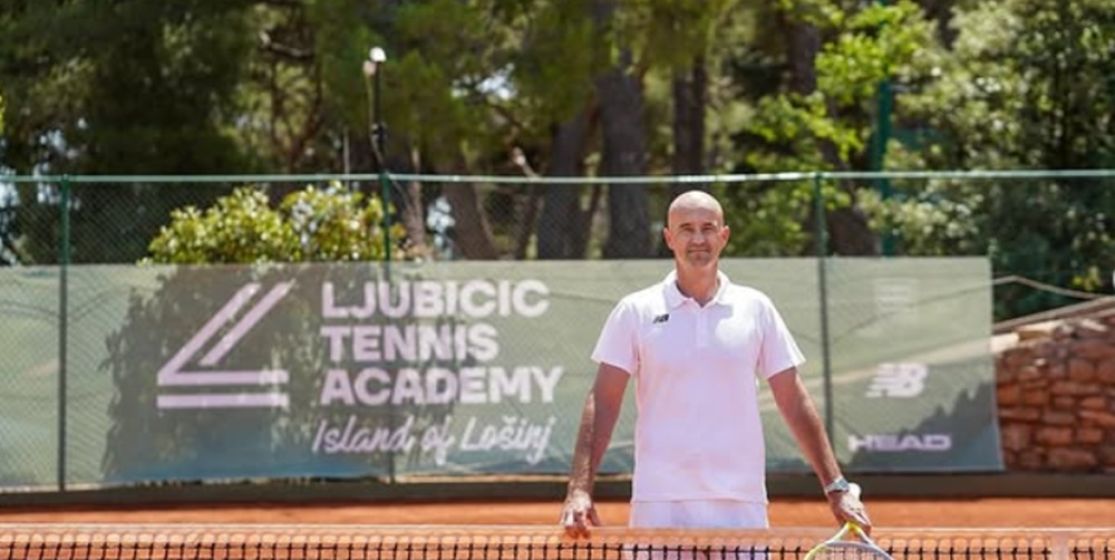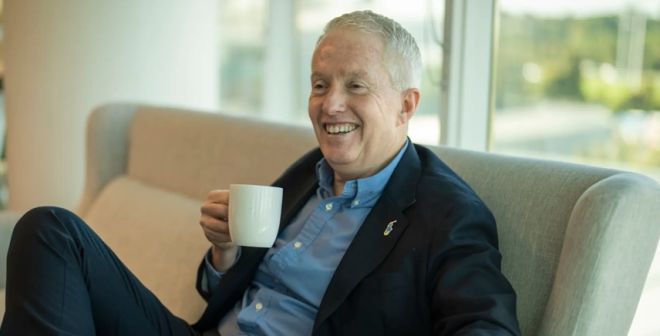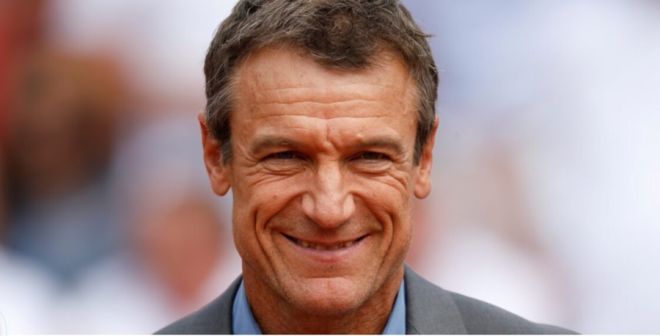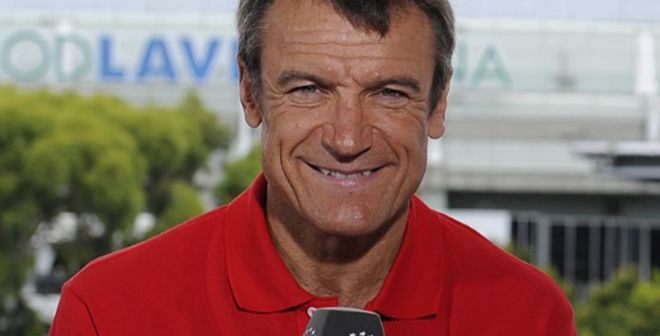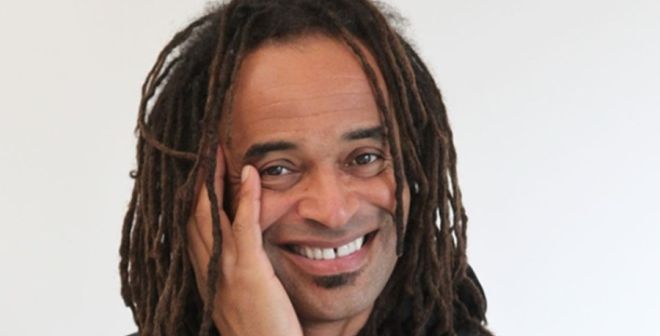PART TWO
Q. Tell me about playing Roger. This is the first part of this question, what I wanted to ask you about is playing Roger. And you played everybody: Rafa, Andy, Novak, everybody. So firstly, if you could talk about what it was like to play Roger himself, and, to put you on a big spot, who would you determine … there is all the talk always, constant, and I find it very difficult to respond to who the greatest is because you're in different eras, but those four guys were all at the same time. So, tell me about your thoughts on the greatest.
IVAN LJUBICIC: Playing Roger was extremely tricky because he had a million solutions and ways to play. I do remember we had a stretch of a lot of matches back to back, final in Rotterdam, final in Dubai, and then we played again in Miami just few weeks later, and he actually played me different ways all three matches, which obviously doesn't happen with anybody else, basically, even today.
That was, for me, the most difficult and complicated part, because I considered myself a tactician, strategist, somebody who is trying to find a way to make the opponent play bad or put him in the uncomfortable position and try to exploit, you know, the weaknesses of the opponent, and he was the king of it. He was pretty much that but just on different level.
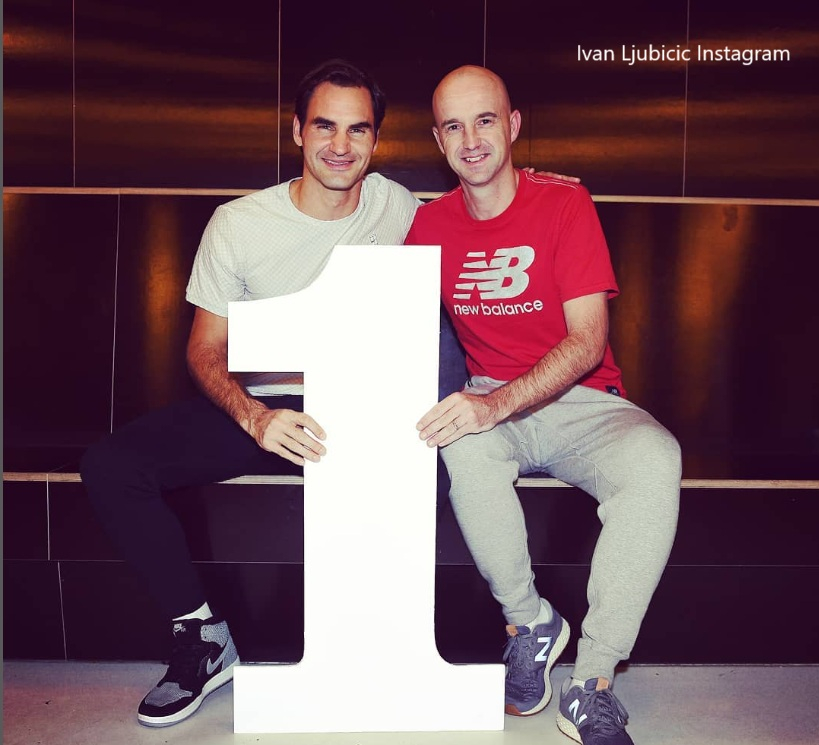
So that was, for me, always because he just had a lot more tools than me, and then it was like a chess game every time when we played.
He would always kind of have couple moves before me, and I just couldn't catch him. You would finish the match against him and you would feel, okay, I just figured what he did to me. Next time I play him, I'm going to get ready for that. Then he will show up and do something different.
That was, for me, really, really, really difficult and complicated against him, which basically I didn't have against the other two guys, let's say, or three, if we can put Andy in that. They had obviously different there were different issues playing against them.
I mean, Rafa was, in a way, predictable in terms of what he was going to do. He was just extremely difficult technically to play against him with his extreme topspin and the speed and the defense that he had. It was really difficult to put the ball away. And always hit hard close to the lines, which is basically the tactic against him, and never put the ball in the middle of the court.
And against Novak, he would just play your tempo. You would always feel kind of on the run, and you would never have your feet on the ground and in a position to even try to risk. He would never really kind of blew you off the court, but you will feel like you are running after him and he's always faster than you. And you will end up playing his game where he's a master, and there was absolutely nothing you could do to put him out of his comfort zone or out of his position.
They are different players definitely. You know, they mastered what they do to the maximum, of course.
And the final question, the greatest I mean, I don't know. I think obviously the most successful is Novak. I don't think there is a doubt about it. He has all the numbers if not most of them.
The greatest, I think it's very personal. For me, you know, greatest basketball player is Michael Jordan, and if he doesn't have I don't think he has any numbers in terms of supremacy and domination, but he is the one that I looked up to when I was growing up, that he was the basketballer for me, he was the one that introduced basketball to me, and he was the one why I watched basketball.
I think everybody in the world who was into tennis last 25 years will have to pick their own greatest in the person why they came to watch and why they followed tennis and why they fall in love in this beautiful sport.
I guess probably if you look at globally, mostly people will say Roger because the way he played and the way the style of his tennis, but I think the numbers are definitely on Novak's side. And then Rafa, of course, has all the Spanish speaking world.
It's a nice debate that makes people talk and argue and fight, if you like, about it (smiling), but I think the fact that we still try to figure it out just makes this sport even nicer and more interesting.
Q. Could Roger have become any better than he was?
IVAN LJUBICIC: I don't know. I mean, better in terms of more successful? I think, yeah, he had that gap between 2012 and '17 where he didn't win any slams. I mean, if you're looking to try to get more wins to him or try to I don't think he could have been better in terms of tennis skills and tennis knowledge or tennis anything.
It's just that obviously I think those five years, four and a half, I don't know how many exactly, you need to look into that and say, okay, what happened there. I know that '13 was the back issues and then he became a father. There are many, many obstacles, maybe distractions, that made him not win for that period of the time. If we look at why he didn't win more, I would look into that period and try to figure it out what happened there.
I don't think he could have been a lot better than he was, because I think when he was dominating and when he was on top of his game, it was something unreal.
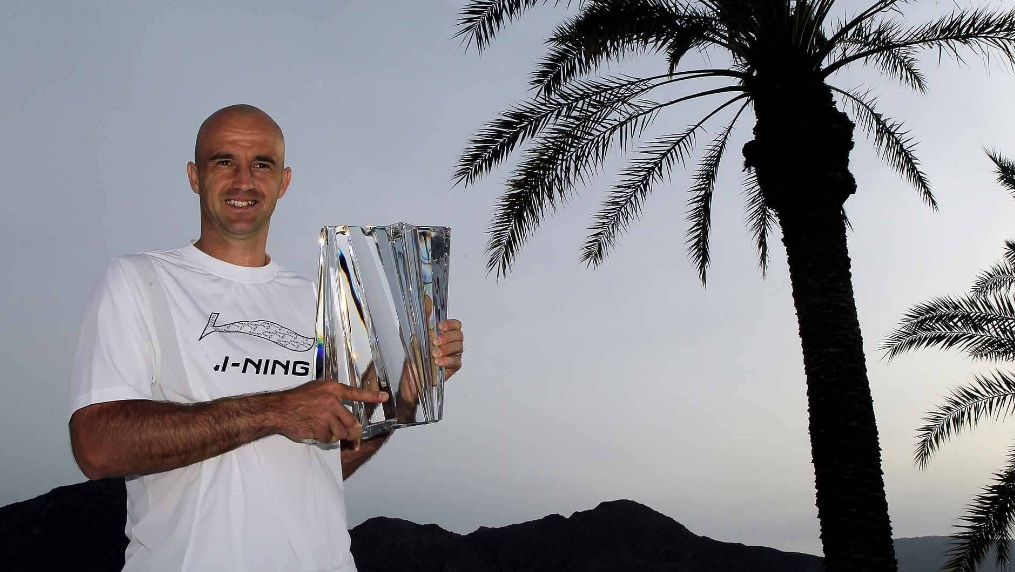
Q. You remain very close to him, family Christmases together; you, your kids, your wife, Roger, Mirka, the four kids there. It must be so satisfying, and, well, homely, family. Agreed?
IVAN LJUBICIC: Yeah, yeah, absolutely. I mean, we were quite close even before we started to work. That, for me, was also interesting learning process was to learn how to disconnect the work from the private life.
He's not that, whatever, star that everybody is looking up to as one of the, you know, famous people. For me, it's just close friends, as weird as it may sound, and we grew up together. We broke in the top 100 I think maybe the same week or like couple weeks apart.
Throughout my entire career, he was always in the locker room. It's difficult to look into somebody with different eyes when you have seen him, whatever, 35, 40 weeks a year for 25 years.
For me, he's a friend. He's a great guy. He's a great person. Obviously, he was extremely good in what he was doing, but he's obviously now retired, and we enjoy our family time together when we can. Obviously, we cover busy schedules on both sides, so we try to find time to spend some time together.
Q. Speaking of busy schedules, two years ago you took on the role of, I think originally it was called director of ambition, but it's now the high performance coach, am I right on that, with the French Federation? What does all that entail and mean, and how demanding is it for you, and how much do you enjoy that sort of a role?
IVAN LJUBICIC: Yes, you're right. First six months I was obviously trying to learn about French structure in the federation. It's really, really big, maybe the biggest federation. It's hard to say. We have almost 1.2million licensed players. Tennis in France is huge.
Then from September 2023 I became, they call it directeur du haut niveau, so the high level director, which is everything basically from 15 years of age up, and also responsible for the national selections and the national center.
This is now basically year and a half that I'm in the position. Entails pretty much everything. I mean, from tournament scheduling to, as I said, national selections, working with the coaches. As the French Tennis Federation, we have coaches that work for the federation that then work with the players.
I'm working with those coaches, helping them take the right schedule, making sure that, technically, you know, I advise coaches, let's put it this way, right. I'm in charge of the coaches. Rarely I work with the players directly. Sometimes I do when I feel like I need, or that I can really, really help something in a very short period of time. But that's pretty much my job.
Then obviously I'm in charge also of the fitness coaches in the national center. It's pretty much a very, very busy, busy job.
I have great people that I work with, so that help me to overlook the entire structure. It's very interesting. Now we can talk for the entire year in French tennis and French structure, but we separate it also in the regions. I'm trying to find the way to maximize the efficiency and performance across the board, not just as the pros and the juniors that are trying to become pros but also all the way down.
Do I enjoy it? Yes, I mean, of course like in every job you have good days and bad days, but it's extremely interesting, it's challenging. The language for me was really difficult at the beginning. I managed to learn that language, as well, in the meantime, so that helps me to communicate.
It's the first job I ever have where it's really difficult to know if you're doing a good job or not, because the results, you can only see I will probably know the results only after maybe I'm already not doing this anymore, so it's a very, very long process, and the results will come probably five to ten years from now.
Yeah, maybe I'm still going to be around working for the French Tennis Federation, but yeah, it's something that you don't see the results right away. You just have to go with your intuition. You have to go with your beliefs and push and hope that whatever you're trying to do is going to bring the results later and another one is, yeah, don't expect somebody to tap you on the shoulder and say you're doing a good job. That's not going to happen.
But anyway, I think we made some slight changes which you can only make slight changes in a structure like this. But I do believe that I'm bringing something different that I think it's positive and that everything that the French were doing that was good before, I hope I can just add a little bit more and bring positive sides to it. The end goal is to win the Billie Jean King Cup and Davis Cup, and hopefully the regional Grand Slam title in the future.
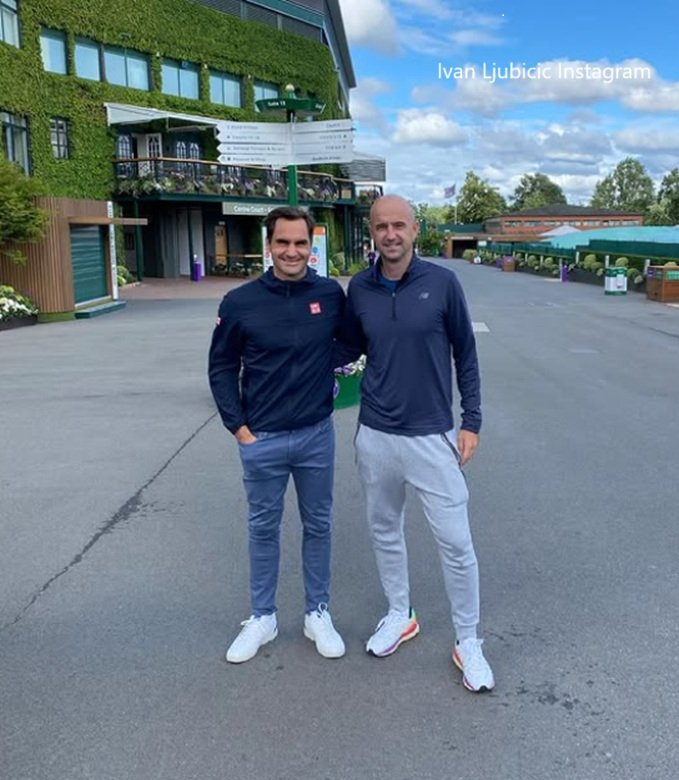
Q. There are so many French players in the top 100, 10, 11 on the men's side, but none in the top 10 on a consistent basis. How do you change that? Everybody talks about results. The results are there to have so many players in the top 100, but what about the top 10 on a consistent basis?
IVAN LJUBICIC: When you look at the work of the federation, I think it's the math. I think the federation responsibility is not the top 10. The federation cannot create top 10 player.
The federation can help to have a lot of really, really good players who will have to then have individual projects and keep pushing in order to keep winning and become special, right? My way of looking at it and going about it is that if I see, and I see few kids, let's say, that are a little bit different than others, I'm not afraid to treat them differently, right?
There was this tendency to kind of pull them all together and make sure that everybody does the same thing. I believe that some kids or some players in general need to do sometimes something a little bit different and not to be afraid to do that.
I do try to individualize those projects, those kids, and, say, allow them or encourage them actually to be, to stay different and do something different, that we and the federation are standing beside them rather than integrate them into our structure.
I think this can work. I think this is the key, to help, again these kids and these players to one day maybe be really special.
Let's see. I mean, if I'm right or wrong, as I said, we'll probably know five to ten years from now, but I think the federation's responsibility has limits, and for me it's really clear, we try to bring as many players as we can to top 100 and try to keep the ambition really high. And those special kids, we try to help, maybe not to be afraid to help those kids a little bit differently, not to treat everybody in the same way.
Q. Something that I find a bit strange, and this is not just with France but with so many countries, that you very rarely get the men players and the women players from a particular country having great results at the same time. Italy, yes, we've got that situation happening at the moment. But very often you'll have periods where the men are dominating and the women are not, or the women are dominating and the men are not. Do you have any thoughts on something like that?
IVAN LJUBICIC: I see what you're saying. If I try to analyze back, yes, I mean, it happens sometimes more often. I don't think there is anything more to read into it. Honestly, I don't see any reasons why it should be like that. I think it's disconnected, and it should not be the way, should not be exclusive one from another.
Sometimes it just happens like this. But I think Italy, it's the proof that that's not the rule. I think in the U.S. also, there were the days where Agassi, Sampras, Serena Williams and Chris Evert were dominating at the same time. Luckily it's not the rule.
I mean, in France today, it feels like the male tennis is, it's better than the female, and it was not the case maybe just couple years back. I think it's just a moment.
Q. What's the next thing you want to do and achieve for yourself, whether it's personally or professionally?
IVAN LJUBICIC: I'm happy where I am. I'm happy with what I do. I think the next few years are going to be similar to last year and this year. I'm going to try to improve French tennis, try to help the kids also in my little academy that I have in Croatia to do better. Help a little bit Italian TV that I do couple weeks a year.
Honestly, I'm really happy where I am right now, and I'm not looking for a change or to do something special. I'm really excited where and what my work will bring and if I will be able to make that change while I'm here in French tennis.


